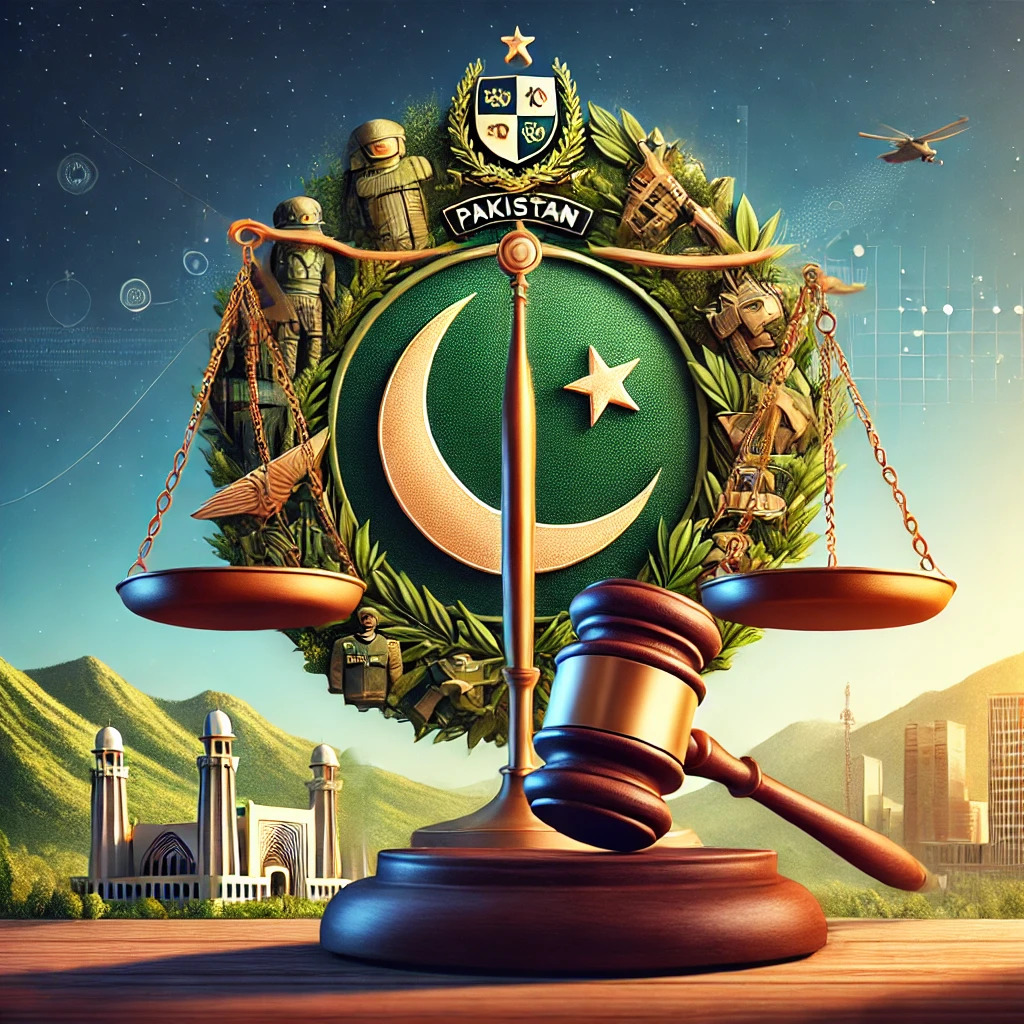In a significant move to uphold justice and social stability, the Supreme Court of Pakistan, under the leadership of Justice Aminuddin Khan, has ruled in favor of granting military courts the authority to try civilians involved in incidents of unrest and violence.
This decision not only addresses long-standing legal and operational challenges but also reinforces the state’s commitment to maintaining law and order.
For years, Pakistan has grappled with incidents of organized chaos, attacks on state institutions, and acts of subversion that threatened the very fabric of its governance.
The perpetrators of such acts often took refuge in legal loopholes, emboldened by judicial delays that stalled accountability. The Supreme Court’s ruling comes as a much-needed intervention, aimed at curbing this pattern and ensuring swift justice.
This landmark decision reflects the broader principle of social conformity, where individuals and groups are expected to align their actions with societal norms and national stability.
It emphasizes the need for a collective adherence to the rule of law, deterring any deviation that could lead to chaos or disorder. By empowering military courts to handle cases involving civilians linked to acts of unrest, the ruling creates a framework for accountability that was previously lacking.
The decision is not merely a judicial milestone but also a mechanism to enforce social control. It sends a clear message to those who might contemplate disrupting the peace: the state’s mechanisms are robust, and accountability is inevitable.
It highlights the importance of aligning individual actions with the greater good of society, particularly in times of political and social instability.
From a governance perspective, the decision underscores the role of institutions in reinforcing order. Military courts, often criticized for their role in civilian cases, are now positioned as vital tools for addressing exceptional circumstances where national security is at stake.
This decision reframes their role, emphasizing efficiency, impartiality, and their capacity to handle cases that directly impact societal stability.
The ruling also addresses broader concerns about the balance between liberty and security. In times of national crisis, the state’s responsibility to safeguard the collective outweighs individual liberties that could potentially harm societal cohesion.
The Supreme Court’s decision reflects this delicate balance, ensuring that the state’s actions are aimed at preserving peace while remaining within constitutional boundaries.
A crucial aspect of this decision is its deterrence effect. By holding accountable those responsible for inciting or facilitating acts of unrest, the ruling sets a precedent that discourages future attempts to destabilize the state.
This is particularly relevant in preventing a recurrence of incidents like those of May 9, where coordinated efforts sought to undermine state institutions.
Furthermore, the decision acknowledges the proximity of military courts to national security matters. In an era where threats are multifaceted, extending beyond traditional warfare to ideological and political disruption, the role of military courts in maintaining control cannot be overstated.
Their ability to deliver swift and decisive outcomes complements the broader judicial system, ensuring a seamless approach to justice.
Ultimately, this ruling is a reaffirmation of the state’s authority and its commitment to protecting its citizens. It fosters a sense of security among the public, reassuring them that the mechanisms for law enforcement and justice are not only functional but also proactive.
By bridging gaps in accountability, the Supreme Court’s decision paves the way for a more stable, orderly, and secure Pakistan.
The implications of this decision extend beyond the courtroom. It strengthens the social contract between the state and its citizens, reinforcing the principle that no one is above the law.
As a nation moves forward, decisions like these act as pillars of strength, upholding justice while fostering a sense of unity and conformity to the collective good. This is not merely a judicial ruling but a step toward a stronger, more resilient society.


